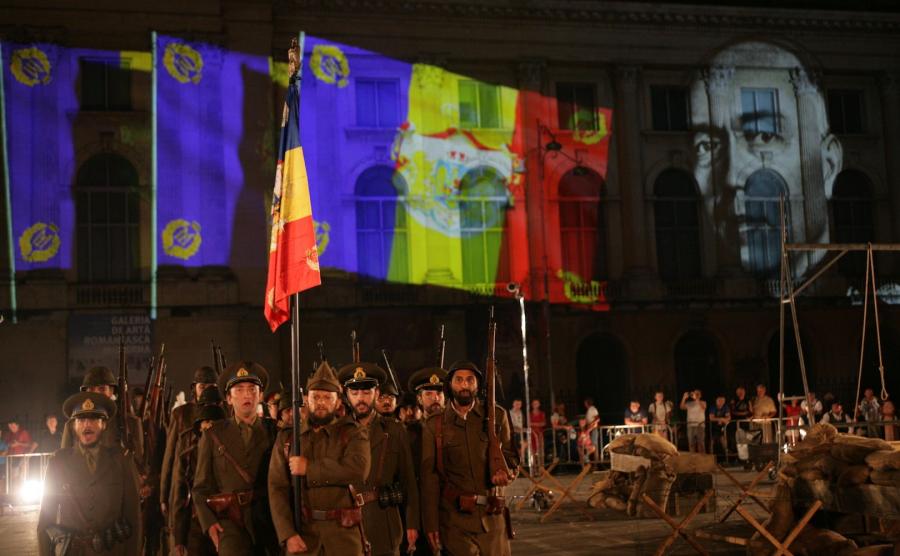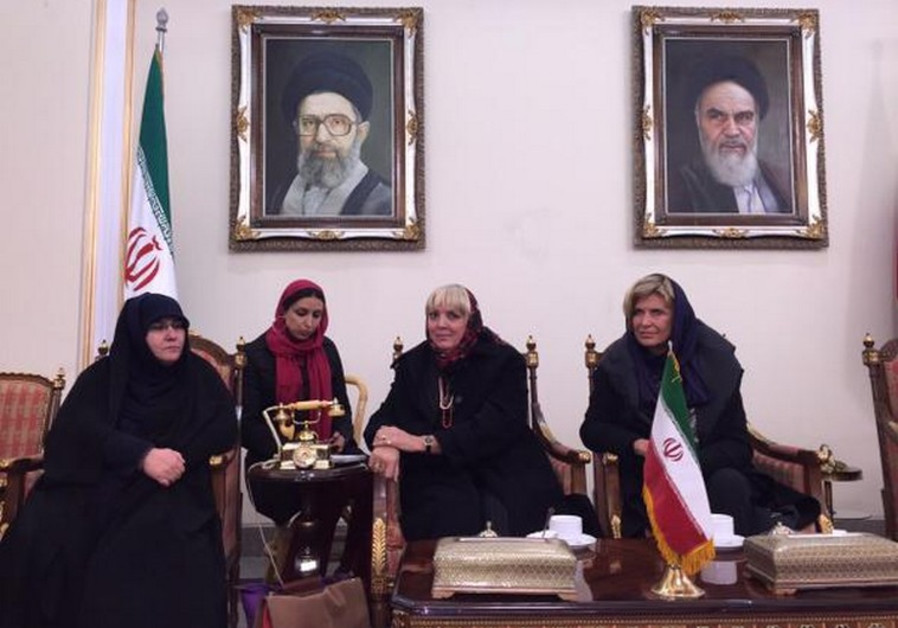 “Nie obchodzi mnie, czy przejdziemy do historii jako barbarzyńcy”. Niewygodna prawda o rumuńskim Holokauście
“Nie obchodzi mnie, czy przejdziemy do historii jako barbarzyńcy”. Niewygodna prawda o rumuńskim Holokauście
Piotr Dobry
 “Nie obchodzi mnie, czy przejdziemy do historii jako barbarzyńcy” / Materiały prasowe
“Nie obchodzi mnie, czy przejdziemy do historii jako barbarzyńcy” / Materiały prasowe
“Hegel powiada gdzieś, że wszystkie historyczne fakty i postacie powtarzają się, rzec można, dwukrotnie. Zapomniał dodać: za pierwszym razem jako tragedia, za drugim jako farsa”. Słowa Karola Marksa idealnie oddają charakter filmu Radu Jude o rekonstrukcji masakry w Odessie.
Jeden z czołowych twórców rumuńskiej nowej fali nie pierwszy raz bierze na cel historyczną amnezję rodaków. W głośnym “Aferim!” rozliczał system pańszczyźniany na Wołoszczyźnie XIX wieku, degradujący Romów i Żydów do poziomu niewolników. W dokumencie “The Dead Nation” przypominał o antysemityzmie i pogromach wypieranych po dziś dzień ze zbiorowej świadomości Rumunów. Teraz wraca z kolejną mocną rewizją w prowokacyjnym “filmie w filmie”.
“Nie obchodzi mnie, czy przejdziemy do historii jako barbarzyńcy” – ta nieludzka deklaracja marszałka Iona Antonescu w rumuńskiej Radzie Ministrów latem 1941 r. dała przyzwolenie na czystki etniczne na terenach Besarabii, Bukowiny i Transnistrii. Szacuje się, że pod faszystowską dyktaturą Antonescu śmierć poniosło około 300-400 tysięcy Żydów – więcej zginęło tylko z rąk Niemców. Ale jak argumentuje główna bohaterka filmu Jude, reżyserka teatralna Mariana Marin, nie liczby są najważniejsze, lecz sam bez mała zapomniany przez świat sojusz z Hitlerem.
Osobliwi “Barbarzyńcy” od progu burzą czwartą ścianę. Widzimy klaps filmowy z nazwiskiem reżysera, po czym aktorka Ioana Iacob zwraca się wprost do kamery, informując nas o granej przez siebie postaci i życząc udanego seansu. W ten sposób Jude wytycza granice umowności filmu, ale i samej “prawdy”, która jest tu słowem-kluczem.
Do owej prawdy obsesyjnie dąży bohaterka. Zaopatrzona w szereg archiwalnych dowodów, jak oficjalne relacje, listy, rozkazy, fotografie czy wreszcie film z procesu Antonescu, usiłuje przed Pałacem Królewskim w Bukareszcie wystawić inscenizację wydarzeń tuż po zajęciu Odessy przez wojska niemieckie i rumuńskie, kiedy to w “odwecie” za wybuch sowieckiej bomby z opóźnionym zapłonem Rumuni dokonali masowej eksterminacji ludności żydowskiej, fałszywie oskarżonej o kolaborację z NKWD.
Ambitna twórczyni robi za alter ego samego reżysera: pragnie swoją sztuką skłonić naród do refleksji. Jako że jednak niewygodna prawda nigdy nie jest pożądana, Marin musi stoczyć nierówną walkę z biurokracją, a nawet własną obsadą złożoną z werbowanych na miejscu naturszczyków.
Nie wszystkim podoba się “wywrotowa” wizja spektaklu. Starszyzna narzeka na “niepotrzebne” przywoływanie demonów przyszłości. Szefowie grup rekonstrukcyjnych oczywiście “wiedzą lepiej” i żądają większego autentyzmu, rozlewu sztucznej krwi i efektów pirotechnicznych. Znamienny jest też entuzjazm mieszkańców w trakcie castingu do ról hitlerowców, podczas gdy Żydów chce grać mało kto, zaś Romów już w ogóle nikt.Najbardziej elektryzująco wypada jednak starcie Mariany z lokalnym rewizorem Movilą (znany z “Aferim!” Alexandru Dabija), który najpierw dał zielone światło na projekt, ale widząc co się święci, chce utemperować artystkę i nakłonić ją do stonowania “antyrumuńskiego” wydźwięku. I tak w burzliwych filozoficznych dyskusjach zderzają się dwa światopoglądy, a cyniczny relatywista Movila okazuje się trudnym przeciwnikiem i wytacza coraz cięższe działa, od wyrażenia troski o dziecięcą widownię, przez rzekomą nieweryfikowalność faktów (“Wydarzenia są historyczne – mówi – tylko dlatego, że historycy o nich napisali”), po zakwestionowanie sensu całego przedsięwzięcia, skoro istnieją tematy dużo niechętniej podnoszone.
“Dlaczego nie wystawisz sztuki o niemieckim ludobójstwie Herero w Namibii?”, pyta z przekąsem, sugerując, że Mariana idzie na łatwiznę i żeruje na najniższych instynktach. “Nie mamy prawa być subtelni”, odparowuje zdenerwowana bohaterka, która w tym momencie zdaje się przemawiać także na poziomie metafilmowym – jako aktorka Ioana Iacob – jak nam się przedstawiła na początku. Czy aby na pewno “nie mają prawa”? Tę kwestię Jude pozostawia do rozstrzygnięcia widzowi. Spór Mariany z Movilą jest dużo bardziej zniuansowany niż utarty w kulturze konflikt idealistycznego artysty z bezdusznym cenzorem. Movila chwilami budzi nawet sympatię, z kolei “moralna misja” Mariany zostaje skontrastowana z jej wątpliwym etycznie romansem z żonatym pilotem. Pobrzmiewa tu niebywała autoironia rumuńskiego reżysera, tak jakby Jude pytał sam siebie, kto dał mu prawo do pouczania innych.
“Barbarzyńcy” to rzadki przykład filmu erudycyjnego, który nie jest przy tym artystowski. Postaci przerzucają się cytatami z wybitnych rumuńskich intelektualistów, jak Emil Cioran, Mircea Eliade czy Lucian Pintilie, sięgają po myśli wspomnianego Marksa, Hannah Arendt, Ludwiga Wittgensteina, ba – odczytują na głos długie fragmenty książek. Nigdy jednak nie wypada to pretensjonalnie, zawsze z wigorem, humorem, błyskotliwością.
Film tyle mierzy się z historią, ile pokazuje dyskusyjny proces jej kreacji poprzez ułudę, iluzję rzeczywistości. Efekt często może być odwrotny od zamierzonego – wskazuje Jude w przerażających scenach finałowych, kiedy gawiedź zgromadzona na placu wiwatuje na widok nazistowskich mundurów, wygwizduje czerwonoarmistów i wreszcie oklaskuje zagładę Żydów. Czyżby współczesnych Rumunów, zupełnie zwyczajnych ludzi, również nie obchodziło, czy przejdą do historii jako barbarzyńcy? A może ta beztrosko odhumanizowana publika to też tylko aktorzy, statyści, i reżyser celowo trolluje, aby zwrócić uwagę na problem?
“To wprost zdumiewające, ile trudu może sobie zadać poszczególna osoba czy cały naród, aby nie spojrzeć w bezlitosne lustro”, pisał James Baldwin w opowiadaniu “Dziś rano, dziś wieczór, tak prędko”. Film Jude to odarte z patosu wezwanie do rachunku sumienia, rozprawka nad “jedynie słuszną wizją”, apel o nietraktowanie historii wybiórczo. A także alarmujące dla Europy przypomnienie, że każde ludobójstwo zaczyna się od języka.





